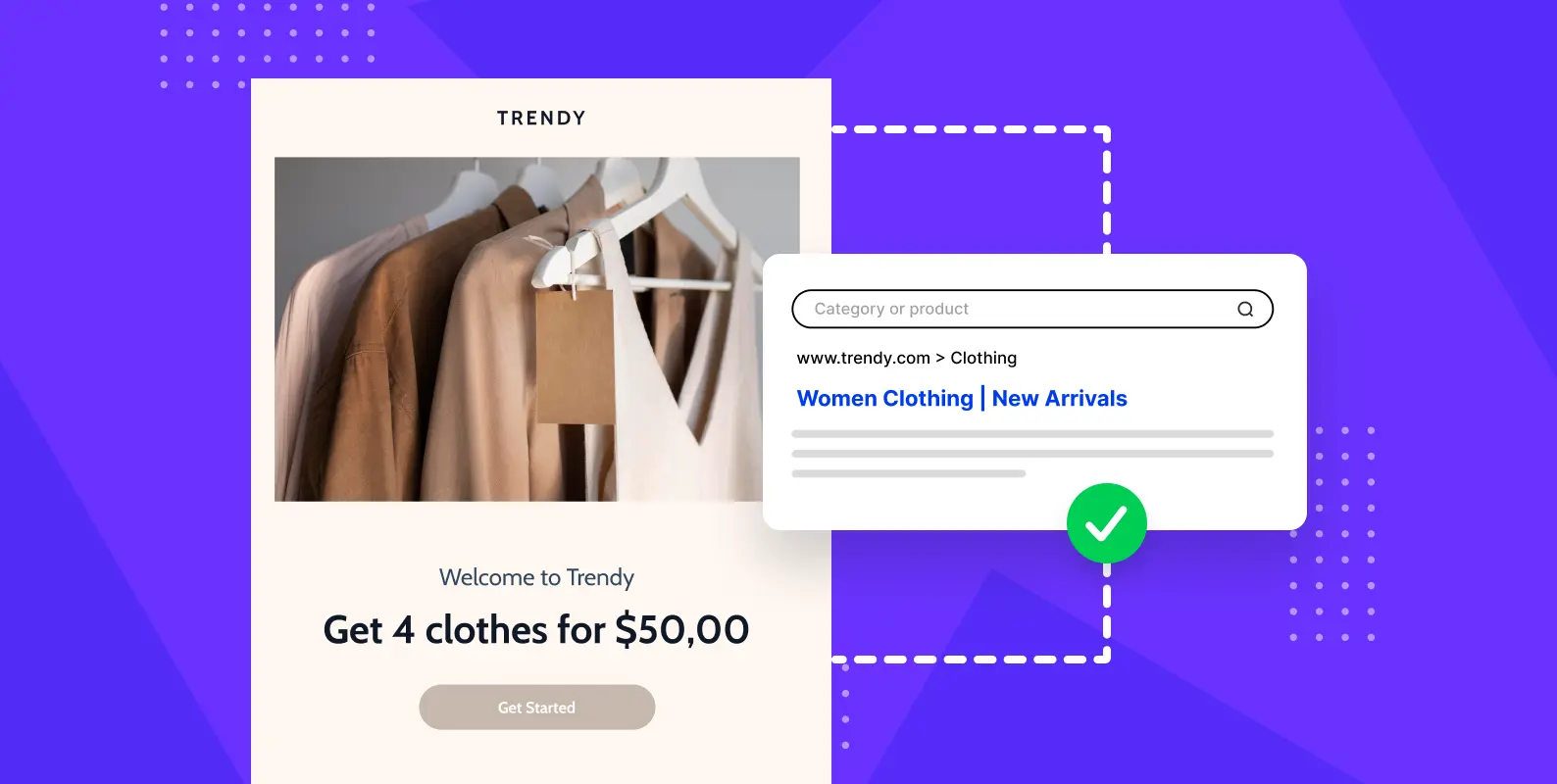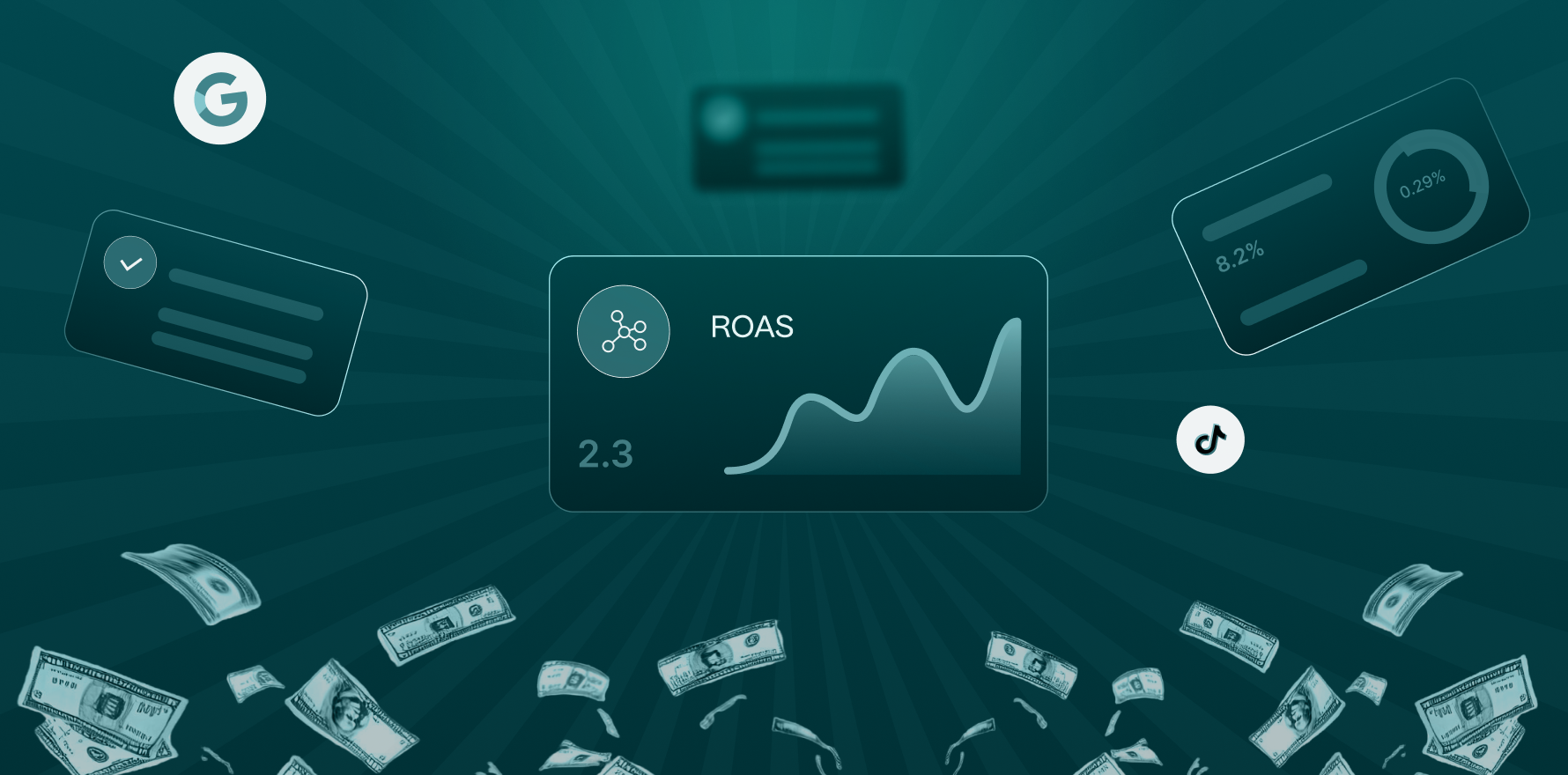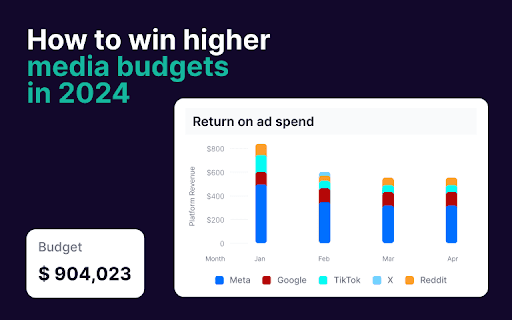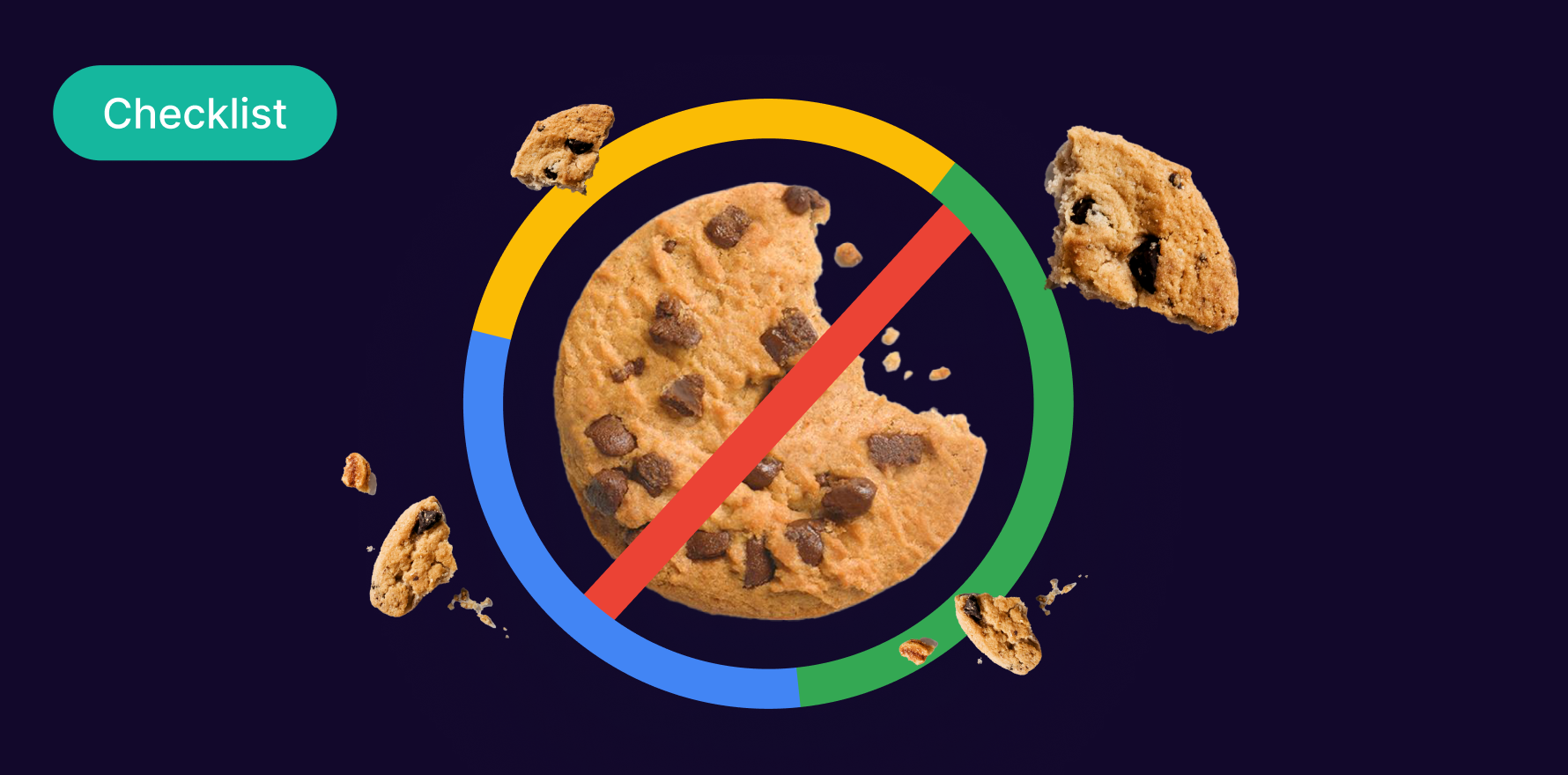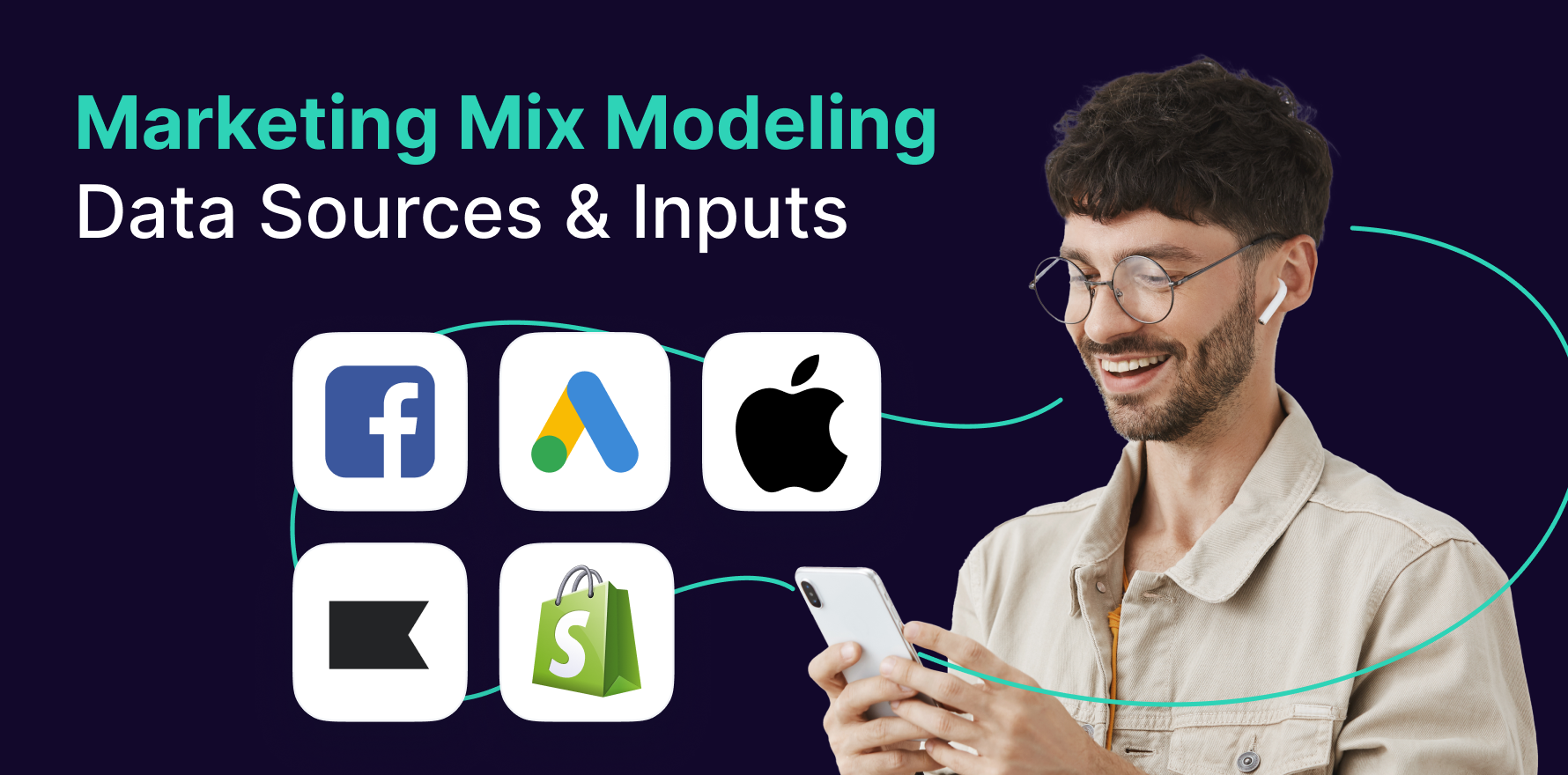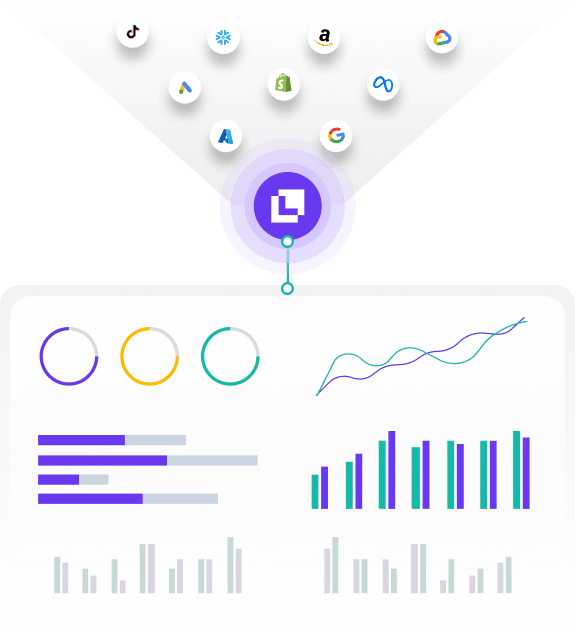“Email is the only place where people (not algorithms) are in control.”
-Ann Handley, Chief Content Officer of MarketingProfs
Email marketing is touted as one of the best marketing channels due to its high ROI, increased conversion rates, and ability to establish personal relationships with subscribers. In addition, email marketers do not have to worry about their marketing campaigns getting snubbed by unpredictable social media algorithms. The autonomy of emails helps marketers leverage the communication channel to boost the SEO of their DTC websites.
Now, bringing direct traffic to your DTC website is a reliable method of increasing the SEO ranking. But, there are multiple other ways to use email marketing to increase your digital presence. Here’s a look at 7 such marketing tactics to enhance your email SEO strategy.
7 Ways marketing fuels your Email SEO Strategy
Email marketing is a highly versatile tool in a marketer’s arsenal. It is used to generate direct leads, establish a brand presence, and create awareness about the product. More importantly, it is also used to increase your website’s visibility. Consequently, SEO and email marketing are not mutually exclusive marketing strategies
Below, we will take an in-depth look at 7 email marketing strategies to achieve better SEO ranking.
1) Building quality backlinks through outreach
In simpler terms, backlinks are links on other websites and blogs that drive some of the traffic to your website. When authority websites backlink to your website, it indicates to Google that your content adds value, therefore, should rank higher. However, earning these backlinks organically is not as easy as it seems as most authority websites won’t come across your content.
So, how does one reach out to these high-ranking websites?
Email marketing offers a direct access channel to the websites’ publishers and content managers. You can pitch your upcoming blogs and insightful reports to these websites. And, if they like your content, you’ll earn backlinks. Keeping an SEO email template for outreach makes the process more optimized.
Reaching out to influencers and popular bloggers in your industry is also a viable option for earning backlinks, especially for DTC and Ecommerce brands. Remember to offer blogs, self-published reports, guest posts, or website links instead of asking the publishers to choose one randomly from your website. It provides you more control over the pages you want to rank higher.
The email outreach for backlinks is more appealing when exclusive early access to reports, and data tables are offered. Prioritize sending personalized emails to publishers and content managers. Sending out a mass email only jeopardizes your brand’s reputation and prevents these high-ranking publishers from interacting with you in the future.
In this example, the author reaches out to Ahrefs, an authority website, to advertise their article. First, they praise the main article. Then, they mention how their new updated article would add more value and context to Ahrefs main article.
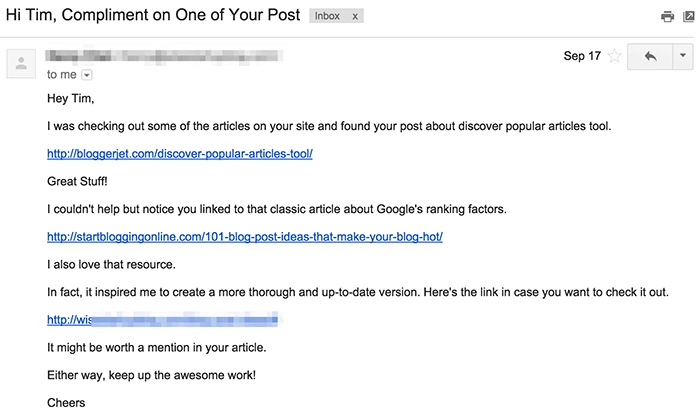
2) Encouraging user-generated content
It is virtually impossible for a budding Ecommerce brand to target all the essential keywords in its niche and increase its SEO ranking. Wasting resources attempting to do so would be financially counterintuitive.
Email marketing allows you to reach your subscribers and encourage them to create user-generated content. It allows the customers to participate in the company’s growth rather than be mute spectators. User-generated content in the form of testimonials, comments, and social media shares helps the brand cover most of the essential keywords and their variations.
In addition, user-generated content increases website visits and time spent during these visits. While it is not explicitly mentioned in Google SEO guidelines, it is implied that these two factors are considered while deciding the ranking of your website.
Reviews and testimonials in promotional email newsletters provide social proof to prospects and readers. Such emails build credibility and improve customer’s trust in the brand.
Adding links to your products, services, webpages, and blogs in these user-generated email newsletters draws more traffic and improves the overall search engine ranking.
One Trick Pony, a DTC peanut butter brand, uses customer reviews to create SEO emails. The testimonials provide social proof for the brand’s product and build trust amongst subscribers. It directly translates to increased website visits.
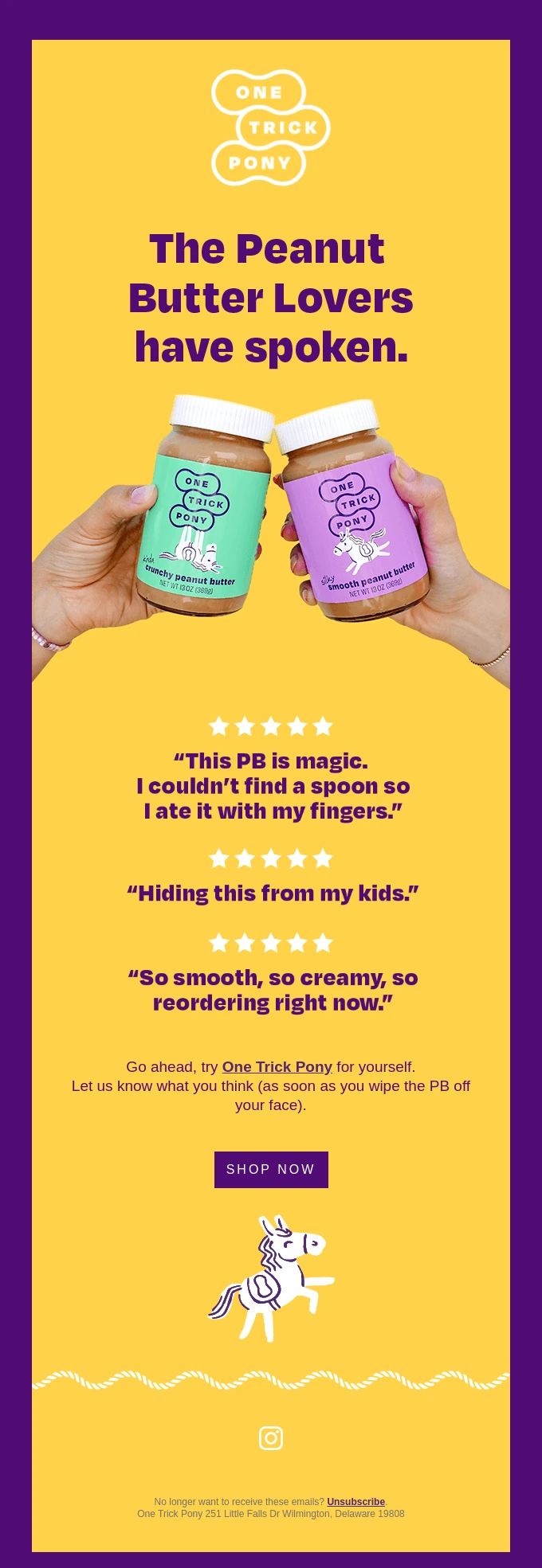
3) Increasing direct and qualified traffic to your website
An email campaign’s primary reason is to drive traffic to your website. Consistently attracting traffic to your DTC/Ecommerce website helps improve the SEO rankings and overall online visibility. However, direct traffic is not enough to sustain your ranking in the search results. For that, you need to generate qualified traffic.
Qualified traffic refers to website visitors who are more likely to engage with the products listed on the website and, eventually, convert into customers. While direct traffic is generated with simple emails, marketers need to deploy highly personalized email marketing campaigns to generate qualified traffic.
In fact, 55% of customers prefer receiving personalized emails with relevant content relating to their likes and dislikes. Creating a dynamic email template helps marketers target subscribers with relevant article pieces and better product recommendations.
Personalized email campaigns, along with an effective segmentation strategy, help marketers create revenue streams and improve site visits which is the ultimate goal of all SEO strategies.
DTC wellness product company Pulp & Press send personalized emails to their subscribers. They use a simple personalization strategy of referring to the readers by their first names. Apart from that, the personal and informal tone of the email makes it more inviting and will drive more qualified traffic to the website.

4) Reducing bounce rates and improving user engagement
Initially, it can be difficult to create a segmented list for your subscribers with limited information. To overcome this, conduct a small survey to understand the preference of your email subscriber and customers. Although the bounce rate in emails is almost negligible at only 0.30%, it can be completely erased by incorporating the feedback in your customer engagement email campaigns.
Search engines also value engagement metrics which show how much time a visitor spends on your website. Creating an intuitive and visually appealing website retains the customer’s attention for longer. Carefully crafted emails can also achieve similar results.
Personalized emails contain CTA buttons and direct links to recommended products. The associated landing pages are equally engaging. The combination of engaging emails and attractive landing pages retains the customer’s attention for longer.
Engaging and highly-targeted email campaigns prevent readers from clicking on the unsubscribe link and reporting your emails as spam. Overall, it maintains your email list’s hygiene and protects your sender’s reputation.
Fitbit, one of the largest DTC fitness brands, creates engaging and personalized emails. This particular email is only sent to customers using older device models. It makes the email highly targeted and is sure to attract the customer’s attention.

5) Boosting social signals with shareable content
Include social media share links in your email newsletters. It makes it easier for the customer to share the newsletter if they find it interesting. Needless to say, increased share rates create more opportunities for people to stumble across your website. Incentivizing readers to share quotable sentences from your email newsletter also works wonderfully.
For the sake of transparency, the number of social media shares does not directly affect the SEO rankings. Nevertheless, the numerous indirect benefits of boosting social signals make it an effective email SEO marketing strategy for boosting rankings.
To begin with, social media shares increase the engagement rate of your various social media accounts. Next, it increases positive brand mentions and increases the DTC Ecommerce brand’s online presence. Lastly, it creates more opportunities to establish strategic partnerships. All these indirectly increase your SEO rank.
Using CTA buttons embedded with share links removes friction and makes it easier for the reader to share the blogs on their personal pages.
Withings, another fitness DTC brand, embeds share links in its CTA button to make it easier for customers to share their achievements on different social media platforms.
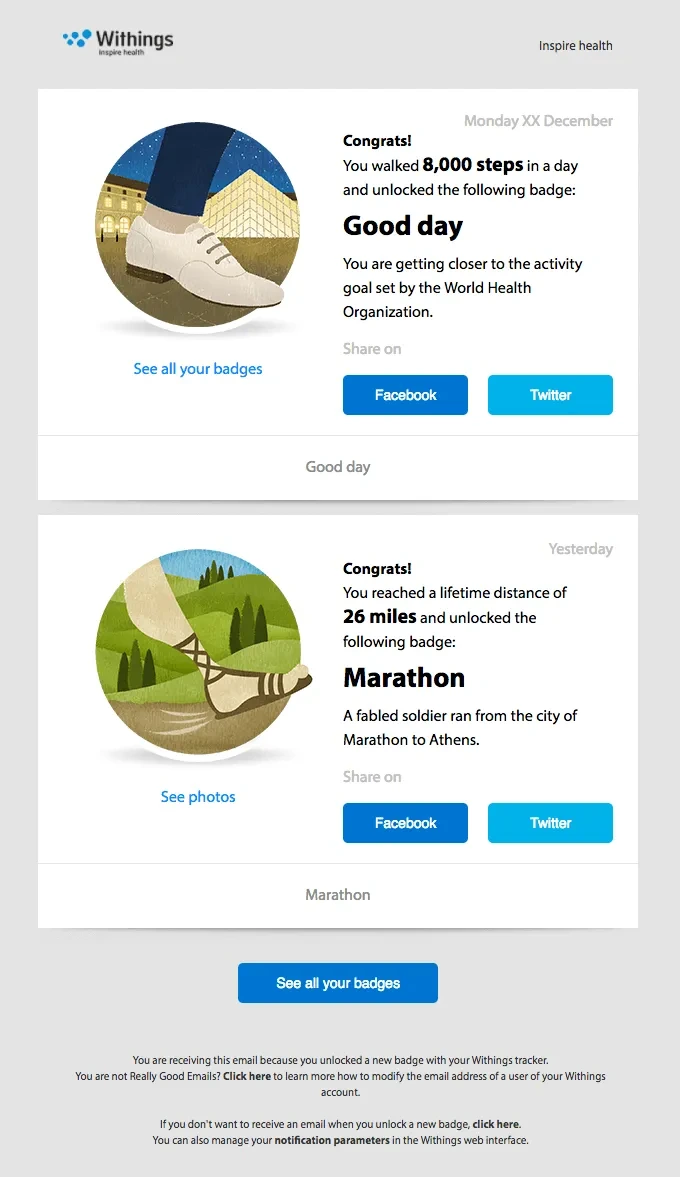
6) Targeting long-tail keywords in your content
Using long-tail keywords in your emails might seem futile. After all, the visibility of the email is unaffected by SEO algorithms. So, how does using SEO keywords in your emails boost your ranking?
Let’s look at an example to better understand the situation.
Consider company A, which is organizing an online event. Naturally, they run a promotional email campaign to increase awareness. One of their subscribers, X, reads the email about the event. However, they were unable to register for it due to their hectic schedule. Now, when X gets the time, they would prefer searching for the event using the keywords on Google rather than sorting through their cluttered inbox.
If the long-tail keywords used on the website are the same as the ones used in your emails, it makes it easier for X to locate your website and the event. Hence, using long-tail keywords in your emails increase the searchability of your website later on.
Similarly, when sharing blogs and articles through email newsletters use the same long-tail keywords in emails. Hammering in the right keywords in your email copy helps increase the chances of your readers locating the content piece later.
Apple uses long-tail keywords to promote its spring event. Now, the same keywords are used to promote the event on other platforms. Consequently, it becomes easier to track down event details with a simple Google search.
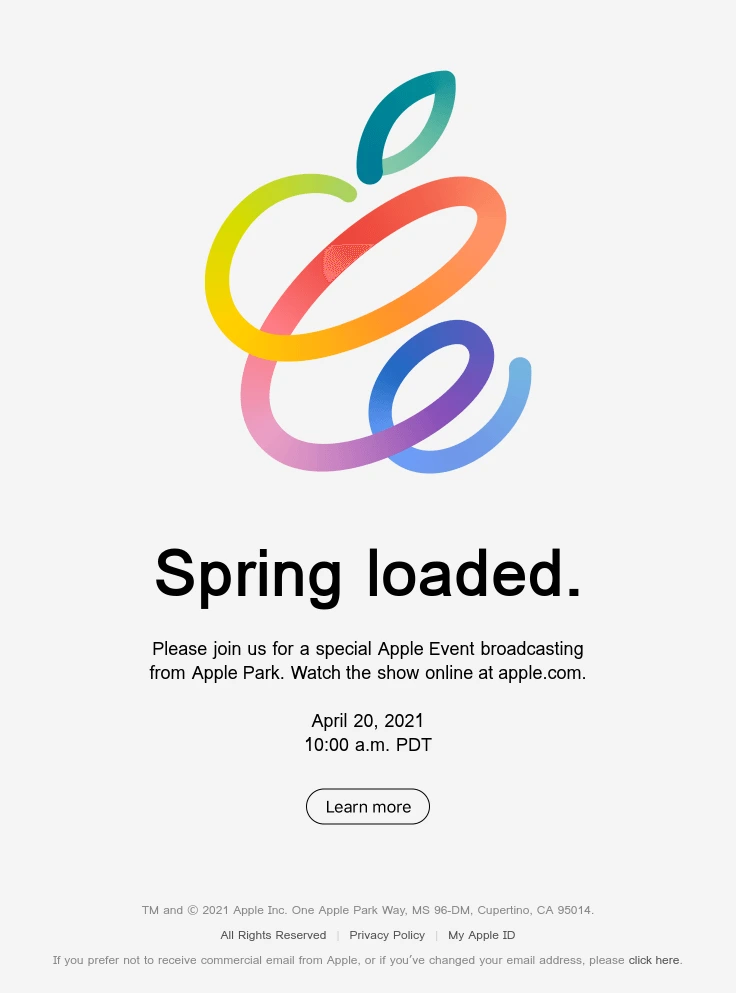
7) Fostering customer loyalty and retention
Carefully curated and crafted email marketing SEO campaigns can foster customer brand loyalty. These customers will be more likely to recommend your brand to their friends, family, and peers. This increases website visits, improving the SEO ranking.
Rewarding loyal and long-term repeat with discounts and special offers encourages them to keep coming back to the website to make repeat purchases. Include referral and share links in your emails to make it easier for subscribers to share your DTC brand with their close ones. The direct impact of increasing brand visibility is more visitors and subscribers.
The wellness product brand Saje incentivizes its readers to refer the brand to their social circle. And, in exchange, they are offering an extra 10% discount to the subscribers.
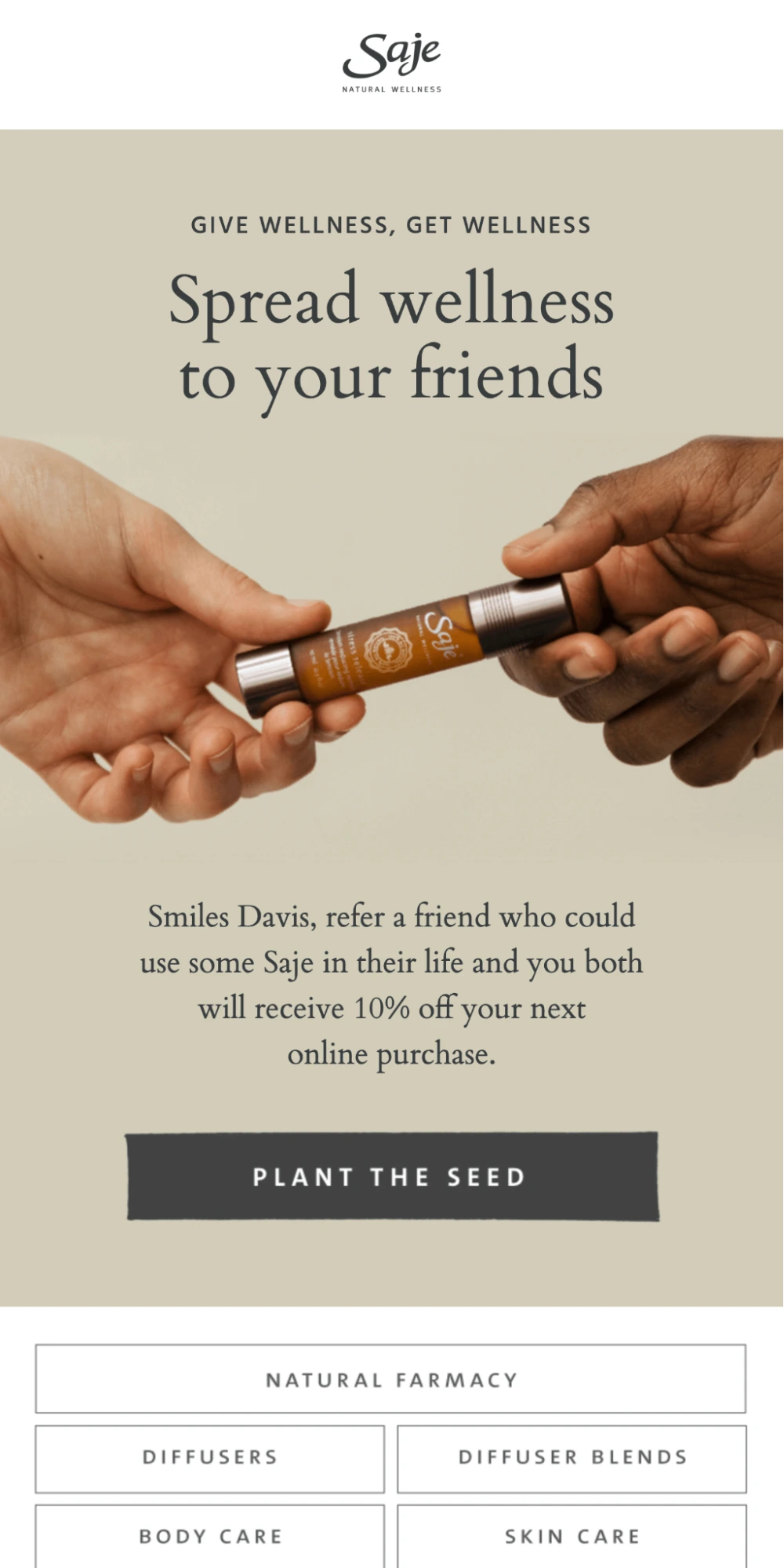
Conclusion
As unlikely as it sounds, email marketing and SEO share a reciprocal relationship. The high ROI and low operating cost of managing email marketing SEO campaigns make it the favorite of marketers.
Lifesight‘s email marketing solutions include-
- Hyper-personalization of emails to increase engagement rates.
- Creating and monitoring segments to boost the relevance of their email content.
- Combining email builder with behavioral data to generate data-rich emails
- Automating email flows to guide customers through the journey.
- Unmatched data analytics and reporting tools to measure the performance of your campaigns.
Looking to leverage the power of SEO for your Ecommerce emails? Sign up .
You may also like
Essential resources for your success
